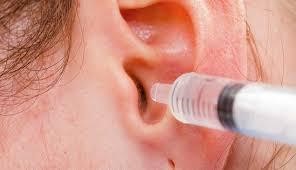Respiratory disease is not limited to asthma, CPOD, emphysema, and tuberculosis. Numerous triggers can cause temporary or permanent respiratory illness. In fact, many infectious illnesses attack the sinuses and lungs, so it’s important to exercise good sense to avoid getting sick.
Your Respiratory System
Your respiratory system is more than just your lungs. It is comprised of your sinuses, your throat, your trachea, and your lungs. You intake air through your nose, which then travels down your throat into your trachea and then into your lungs. Unfortunately, you also intake germs that are in the air with each breath.
How You Get Sick
You know that germs can make you sick, but did you know that they come in different forms? North Carolina Department of Health and Human Services reports that infectious germs are bacteria, pathogenic microbes, and viruses. This is why so many people get sick. The body isn’t fighting just one organism; it’s fighting several organisms.
When you inhale the organisms into your respiratory system, the germs wallow in your mucous and saliva, which means you’ve now become contagious. Every time you cough or sneeze, you release these germs into the air through respiratory secretions. You also spread the germs via your hands when you cover your cough or sneeze and via your mouth through saliva.
Common Infectious Respiratory Diseases
You know that bronchitis, influenza (the flu), pneumonia, and tuberculosis are contagious respiratory illnesses, but did you also know that chickenpox, diphtheria, the measles, the mumps and strep throat also attack the respiratory system? You have more to worry about during flu season than its namesake. Many infectious conditions will target your sinuses, throat, and lungs.
How to Prevent Getting Sick
Vaccinations are the best way to prevent contracting a contagious illness, and the University of Cincinatti offers other helpful suggestions as well. In Japan, people wear surgical masks when they are ill. This prevents spreading a contagion, but it can also protect you when you’re healthy. If you might be exposed to germs, wear a mask to cover your mouth and nose.
Try to avoid people with respiratory illness. Obviously, you might not be able to stay away from sick people altogether, but if you hear a coworker a few cubicles down with a severe cough, avoid the area. Don’t share your personal use things, such as your towel or toothbrush, and don’t let a sick person drink out of your cup. Finally, as your mother always said, wash your hands.
A Demographic Link
A University of Cincinatti Online report suggests that your demographic may also place you at risk. According to studies, African-Americans, Puerto Ricans, and poverty-level residents in the northeast are more susceptible to suffering from respiratory illness. You are also at an increased risk if you live in a high-pollen area, as this bumps up the number of asthma sufferers.
Nobody wants to get sick. To prevent illness, understand how your respiratory system works and take the proper precautions. Wear a mask, stay away from coughers and sneezers, don’t share anything, and get all the vaccinations your doctor recommends, even if you are afraid of needles.













+ There are no comments
Add yours